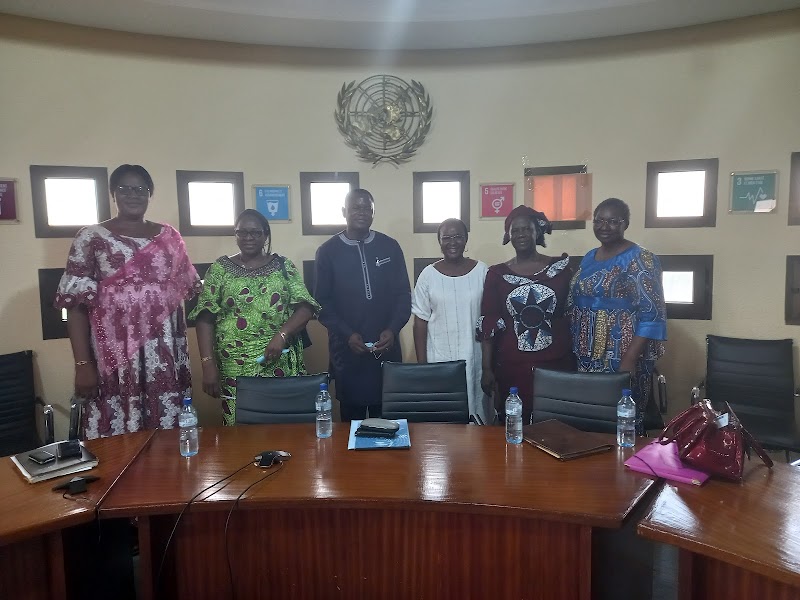Maurice Yaméogo was the first President of Burkina Faso, serving from 1960 to 1966.
Background and History:
- Birth and Early Life: Born on December 31, 1921, in Koudougou, French Upper Volta (now Burkina Faso), Yaméogo was the son of a wealthy farmer.
- Education: He received his primary education in Koudougou and completed his secondary education at the Lycée Saint-Joseph in Ouagadougou.
- Early Political Career: Yaméogo’s political career began in 1946 when he was elected to the Territorial Assembly of Upper Volta.
- Leader of the RDA: In 1957, he became the leader of the African Democratic Rally (RDA), the dominant political party in Upper Volta.
Ethnicity:
- Mossi: Yaméogo belonged to the Mossi ethnic group, the largest ethnic group in Burkina Faso.
- Mossi Kingdoms: The Mossi people have a rich history of forming powerful kingdoms in the region, including the Kingdom of Ouagadougou.
Achievements, Legacy, and Notable Aspects:
- Independence Leader: Yaméogo played a key role in leading Upper Volta to independence from France. He was the head of the government during the transition to independence.
- First President: He became the first President of independent Upper Volta in 1960 and held the position until his overthrow in 1966.
- Pan-Africanism: Yaméogo was an advocate for Pan-Africanism and worked towards promoting unity among African nations.
- Economic Policies: During his presidency, he focused on implementing economic reforms to improve the living standards of the people.
- Overthrow: In 1966, he was overthrown in a military coup led by Colonel Sangoulé Lamizana.
- Later Life: After his overthrow, Yaméogo went into exile and lived in neighboring countries before returning to Burkina Faso in 1980.
- Death: He passed away on September 9, 1993, in Ouagadougou.
Popular Aspects:
- “Father of the Nation”: Yaméogo is often referred to as the “Father of the Nation” in Burkina Faso for his role in leading the country to independence.
- Legacy of Statesmanship: His efforts to promote national unity and reconciliation after independence earned him respect and recognition among many.
- Contribution to Pan-Africanism: Yaméogo’s dedication to Pan-Africanism and his involvement in regional and international organizations contributed to his popularity.
Emblem of Burkina Faso
To enrich your insights into presidential figures worldwide, also explore some prominent first presidents from other countries, such as Bulgaria, Brunei and Brazil. Delving into the leadership journeys of these figures can offer valuable perspectives on their historical significance and pivotal roles in shaping global politics.

The official residence and symbol of the Burkina Faso President
10 Iconic Presidents Who Shaped Burkina Faso’s History

Here are 10 of the most popular presidents from Burkina Faso:
- Thomas Sankara
- Blaise Compaoré
- Michel Kafando
- Roch Marc Christian Kaboré
- Maurice Yaméogo
- Seydou Ouedraogo
- Joseph Conombo
- Sayed Madani Tall
- Lamizana
- Yugoslavia Ouedraogo
1. Thomas Sankara: Widely regarded as one of Africa’s most iconic leaders, Thomas Sankara served as Burkina Faso’s president from 1983 until his assassination in 1987. He was known for his dedication to pan-Africanism, anti-imperialism, and his radical policies aimed at promoting self-sufficiency and eradicating corruption.
2. Blaise Compaoré: Serving as Burkina Faso’s president from 1987 to 2014, Blaise Compaoré was initially hailed for his leadership and stability. However, his long tenure was marred by allegations of corruption and human rights abuses. His presidency ended following a popular uprising in 2014.
3. Michel Kafando: Michel Kafando served as the transitional president of Burkina Faso from 2014 to 2015, following the ousting of Blaise Compaoré. He played a key role in the country’s transition to democracy and oversaw the organization of free and fair elections.
4. Roch Marc Christian Kaboré: Roch Marc Christian Kaboré became Burkina Faso’s president in 2015, following his victory in the country’s first democratic elections after the fall of Compaoré. He has focused on stabilizing the country, combating terrorism, and implementing socio-economic reforms.
5. Maurice Yaméogo: Maurice Yaméogo was the first president of Upper Volta, the former name of Burkina Fas

